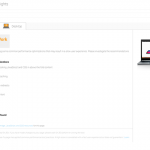These Work-Life Balance Strategies Help Even In The Most Demanding Jobs
Work-life balance sounds great, but it’s getting tougher to achieve. Managers and staff often don’t see eye to eye on time spent between the two. Several studies also indicate that the traditional workweek is getting longer. In certain industries such as accounting, law, consulting, or at startups in general, that balance is assumed to be impossible. The “80-hour workweeks” people complain about mean there’s no time for everything else.
Yet after studying time logs kept by people in many of these industries, I’ve noticed something. Weeks described as epic often feature work-hour totals in the mid- to high 60s. More normal weeks often feature work-hour totals in the mid-50s to the lower 60s. Even though workers perceive that they’re logging insane hours, one 2011 study comparing estimated workweeks with time diaries found people claiming 75-plus-hour weeks were off by about 25 hours.
In other words, working 56 hours a week, averaged over the long term, is a reasonable goal in many demanding jobs. This is an important number, because there are 168 hours in a week. If you work 56 hours, and sleep 56 hours (8 per night) that leaves 56 hours for other things. This 56-56-56 split is balance in its own way—and is more achievable than any other version.
With that in mind, there are several ways to have work hours in the long-but-reasonable category, yet make the most of the rest of your time.
1. Know Where The Time Goes
Even if you track your work hours to bill clients, learning where your other 56 hours go can be eye opening. “It’s amazing how much you learn about the way you spend your time when you actually track it,” says Paula Pant, who runs the Afford Anything blog and podcast.
She had already cut the obvious time wasters (e.g., TV) out of her life, but when she tracked her time, she realized she spent 17.75 hours on things she didn’t care about. Now, when she needs a break during work, she realizes, “I could either click on BuzzFeed articles, or get up and do a quick 10-15 minutes of yoga.” One gives her more energy, and feels like a better use of precious nonwork time.
Work time itself can also be made more efficient. A survey by Post-It Brand found that on average, office workers say they attend three unnecessary meetings a week, and 24% say they attend five or more. Look at your calendar for the next week on Friday, and see what can be canceled, shortened, or delegated.
2. Think 168 Hours, Not 24
Vanessa Chan, the founder and chief designer at re.design studios and the inventor of loopit headphones, spent many years at the consulting firm McKinsey, becoming a partner before she left. She also has two daughters. “Usually I think in one-week chunks,” she says. During her consulting career, she would figure out her priorities for the week, and then map these out for individual days. She’d ask, “How do I make sure I’m taking care of those? What am I putting off and when can I do that?” By looking at a whole week, she could see that long work hours and travel Monday through Wednesday might be balanced by much shorter days, and visits to her daughters’ school, later in the week.
3. Manage Others’ Expectations
Having a personal life in client-facing industries will always be challenging but not impossible. First, know that flexibility is a team sport. Clients can learn that someone will be available 24/7, but people will cover that availability in shifts.
Second, the good news is that in order to have a client call at 10 p.m. on Friday, the client has to want to be on the phone at 10 p.m. Friday, and this is not always the case. Anne Donovan, the People Innovation Leader at accounting firm PwC, has been at the firm for 33 years. Increasingly, she says, clients are facing their own staff demands for flexibility. Consequently, “It’s easier to be honest with our clients” about personal needs. “Five years ago we wouldn’t bring that up to a client,” she says, but now, more often than not, “as long as we deliver, they don’t care.”
4. Make Work Fun
The best way to keep your 56 working hours from feeling like 80 is to seek out projects you enjoy. Invest in your relationships with colleagues. “Your personal life is very often enhanced by your satisfaction with your professional life,” says Thomas Gaynor, the office managing partner of law firm Nixon Peabody’s San Francisco office. “I love what I do and have been lucky to be able to work with terrific clients for a long time, so when I come home and I’m excited and invigorated by something that happened at the office or by a win for a client, I share that with my partner, and that, too, is part of life.”
5. Protect Your Non-Negotiables
Intense jobs will take any time you give them, so you have to consciously speak up to demand time back for anything else that is important to you. Donovan coached softball for five years when her children were younger. People knew practice was coming and could plan for it. A commitment like that is often easier to protect than more nebulous activities, but Donovan stresses that whatever your non-negotiable, you can lobby for it. “If yoga is your thing, if you absolutely have to have yoga to feel like a whole person, it’s totally on you to protect it.”
For Chan, her girls’ bedtime was sacred. “That’s when you do the reading, that’s when you get the quiet moments and find out what they’re doing at school,” she says. She and her husband, Mark, a corporate executive who also travels, would toggle back and forth on who would do bedtime and made it work. “There were only two to three days in my entire career at McKinsey when one of us didn’t put them to bed,” she says.
6. Plan Weekend Adventures
Some people with intense jobs get to the weekend and think they want to do “nothing,” but that’s a recipe for feeling like life is nothing but work. If you work long hours, leisure time is too precious to be leisurely about it. Make at least a loose plan of activities you’d genuinely enjoy, and that dose of anticipation can help you power through a long Thursday and Friday.
7. Outsource Or Simplify
You don’t want to spend your entire nonworking 56 hours on chores and errands. Many people use the extra cash that often comes with an intense job to get these tasks off their plates, but that’s not the only option.
Chan’s family only recently moved out of a house where they all shared a bathroom. Small spaces mean less time spent cleaning. As for cooking, “All our meals are home-cooked, but they’re 15-minute meals,” she says. Salmon and steamed veggies, or pasta, or a dinner salad, or an omelet are all easy options.
8. Be Good To Yourself
You work hard. Choose pleasure when you can. “Do something to reward yourself for choosing a tough but great career,” suggests Gaynor. Maybe it’s paying for a trainer, or regular massages, or great vacations, but self-care can go a long way toward making the 56-56-56 lifestyle work.
9. Take The Long View
“Will associates have to make some compromises in their personal life early in their career? Absolutely,” says Gaynor. “Will they get more control the further they advance in their careers? Absolutely.”
Even within any given year, it helps to know that busy phases come and go. A 65-hour week during accounting’s busy season might be tempered by a 45-hour week in June. “It does balance out,” says Donovan. It is possible to keep the hours under control. Looking at her colleagues, she says, “If they’re working 3,000 hours a year”—that is, averaging north of 60 per week—”it’s because they’ve dived into some things they want to be part of.”
Fast Company , Read Full Story
(19)













